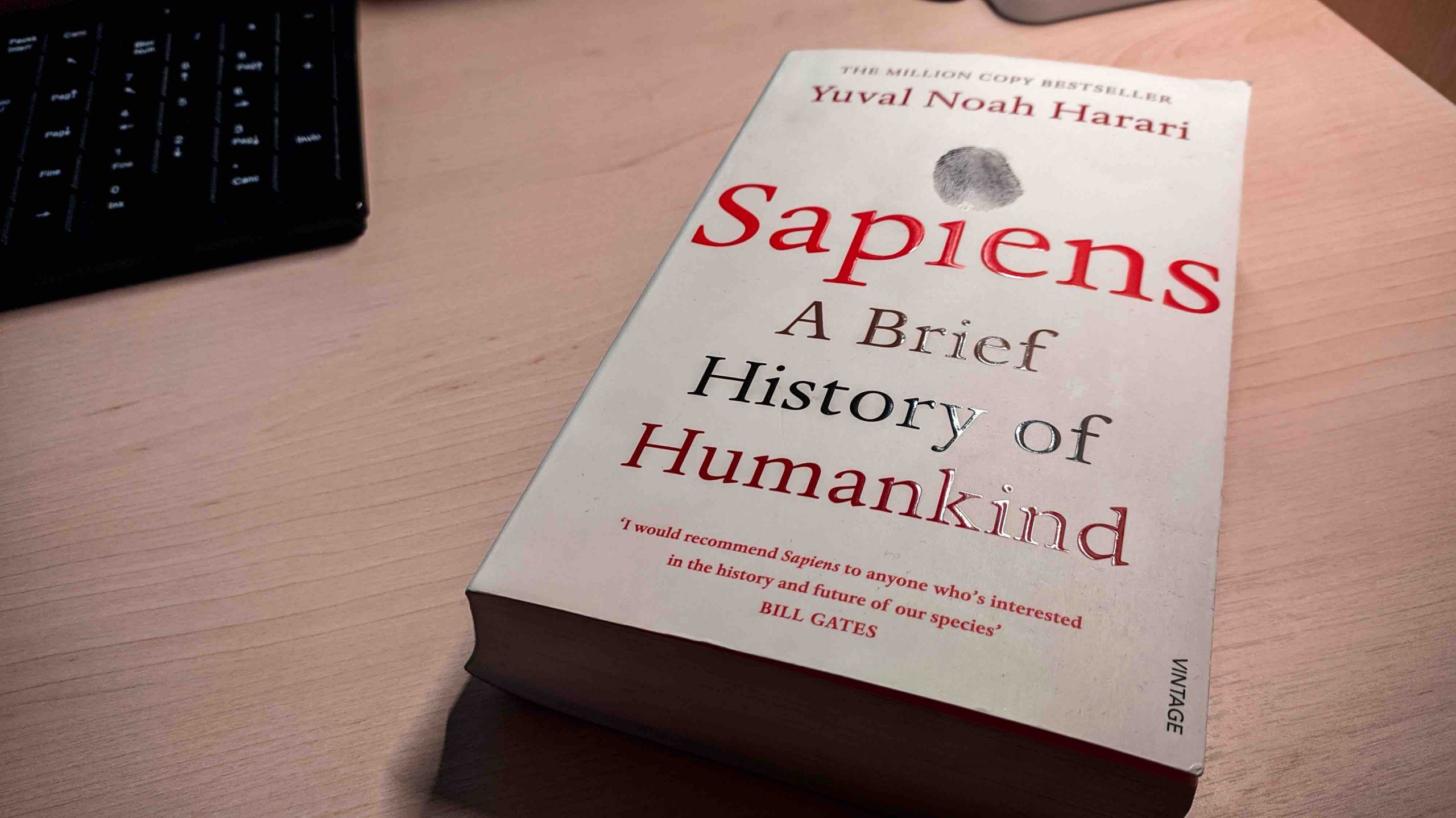SUBTITLE: BRIEF HISTORY OF HUMANITY
AUTHOR: Yuval Noah Harari, born February 24, 1976, is an Israeli historian, essayist and university professor. Harari first specialized in medieval history and military history, and later completed a doctorate in history at Jesus College, Oxford in 2002. In 2012 he was a member of the Israel Youth Academy of Sciences; he currently teaches world history and macro-historical processes at the Hebrew University of Jerusalem.
DEDICATION: “To the dear memory of my father, Shlomo Harari”
CHAPTERS: 20
PAGES: 537
DESCRIPTION: Harari tells stories from the ancient human species in the Stone Age to humans in the 21st century through various historical analyses, focusing on our human Homo sapiens, what we are and how we become human. It also covers politics, economics, biology and philosophy. The book is divided into four parts: starting from the Cognitive Revolution (about 70.00 years ago), which takes into account the Agricultural Revolution (about 12.00 years ago) and the Scientific Revolution (about 500 years ago). In dealing with these topics he tries to analyze human history in a philosophical-scientific way. Today there are only humans, Homo sapiens, and this book explains how we have become rulers of the earth through imagination and fantasy: we are the only animals that can talk about unreal things, such as divinity, countries, laws, money, consumerism.
NOTES: Harari discusses topics that are always clear and sometimes compelling, and from a historical point of view, the most well-documented and rigorously reliable topic, can execute this ambitious plan impeccably. The author intends to clarify how some unimportant animals, such as humans who lived in East Africa about 2 million years ago, can become human beings today. Like the gods, they largely influence the surrounding ecosystem. Unfortunately, this causes the destruction and manipulation of other creatures to indulge in their own well-being and enjoyment, often causing them to lack a clear understanding of their behavior. To explain this exceptional evolution, which did not have the same outcome in any other animal, Harari examines three very important key moments in the history of humanity: the Cognitive Revolution, the Agricultural Revolution and the Scientific Revolution. Through an extremely rational analysis of historical processes, far from clichés and ideas that are not based on concrete bases, Harari explains why we are as we are: disassembles any belief, myth and value through logically perfect explanations. In essence, we human beings are the only animals that truly believe in the imaginary stories that populate their heads: this is what made us “different” from other animals and that made us invent religions, trade, money, human rights. None of this really exists: however, the human being believes in it and believes in it not alone, but involving all his fellow men. This makes possible a type of cooperation that does not exist in any other group of animals: other animals can only collaborate among a few specimens that are personally known, the human being can cooperate and collaborate with thousands, millions of other human beings that he has never known personally only because the latter believe in the same imaginary stories that he believes. It is a really very interesting essay (sometimes involving, sometimes a little depressing when it disassembles the values and myths in which the reader believes) that I recommend to everyone, also and especially for the extraordinary ability of the author in explaining with words and examples understandable and effective arguments sometimes very complex.
Federico Zene 4N
